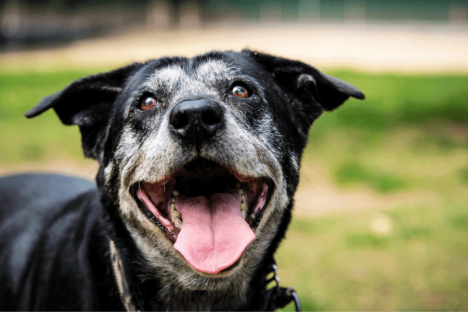Caring for senior pets involves love, compassion, and a few additional considerations to accommodate their changing needs as they age. Regular veterinary visits play a crucial role in ensuring their comfort and health during their golden years. It’s recommended that senior pets see the veterinarian at least twice a year. These biannual check-ups are a proactive measure designed to catch potential health issues early and help manage age-related changes and ensure that your senior pet remains comfortable and healthy.
When Is a Pet Considered a Senior?
- Cats: Typically considered seniors around 10 years old.
- Dogs: Typically considered seniors around 8 years old.
Signs of Aging in Pets
As pets age, you might observe several changes in their behavior, energy levels, and dietary needs:
- Energy Levels: Older pets may slow down, preferring leisurely walks over active play, and may sleep more than usual.
- Appetite: Dietary needs may shift, requiring adjustments to their diet to match their changing nutritional requirements.
- Behavioral Changes: Senior pets might display increased irritability or confusion.
Common Health Issues in Senior Pets
Senior pets are more prone to various health problems, including:
- Arthritis: Joint pain and stiffness can affect mobility.
- Dental Disease: Dental issues can become more prevalent, leading to discomfort and potential systemic health problems.
- Heart Disease: Cardiac issues can become more common with age.
- Kidney Disease: Kidney function may decline, impacting overall health.
- Cognitive Dysfunction: Similar to dementia in humans, cognitive dysfunction can lead to confusion and behavioral changes
Please call us to schedule your senior pet’s annual or semi-annual wellness exam. Don’t forget to inquire about our various options for managing osteoarthritis and promoting joint health! Have any questions or want to schedule your pet’s wellness exam? We’re happy to help! You can contact us here or request an appointment online.


